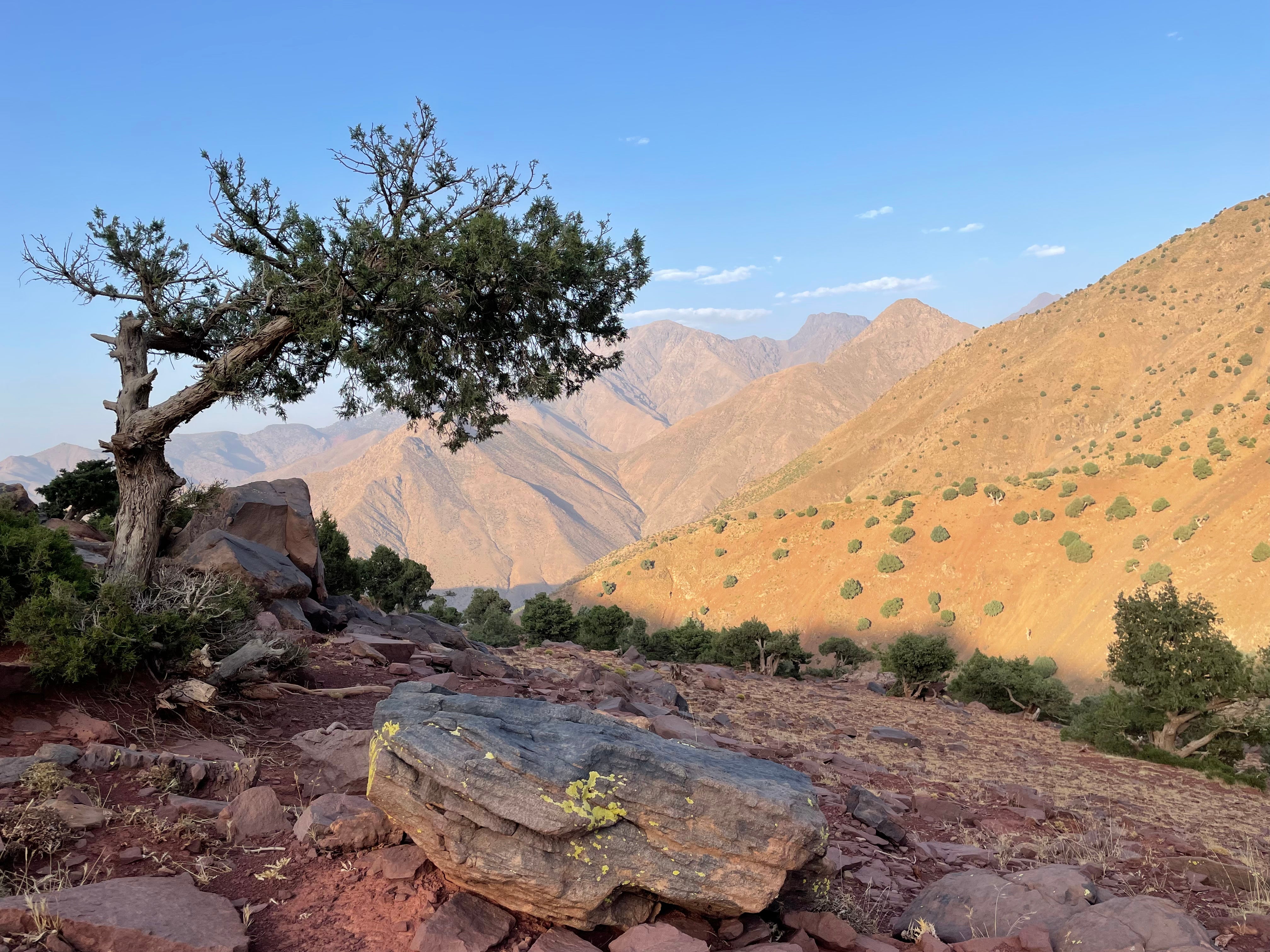Today has brought the news of another tourist dying while hiking in the extreme heat on holiday – the man was climbing Mount Vesuvius with his family when he suffered a suspected heart attack. Sadly, there has been a spate of accidents involving tourists out in the mountains this month. There are six dead or missing in Greece alone, as a heatwave sweeps across the Mediterranean with temperatures frequently sitting in the high 40s. The most high profile case was that of TV doctor Michael Mosley, whose body was found on Aegean island Symi after going out for a steep, rocky walk alone with no mobile phone. These tragic cases remind us of the importance of taking precautions when hiking in heat, especially in rough terrain or unfamiliar conditions when on holiday.
I live in the High Atlas Mountains of Morocco and hike regularly out from my house in all weather. In summer, the temperatures are in the high 30s and sometimes into the 40s, and the sun is extremely strong due to the altitude.
My first introduction to strenuous exercise in extremely hot conditions came when I signed up to run the Marathon des Sables, known as the toughest race on earth. It is six marathons run in six days across the desert and you have to carry all your own food and equipment. To make it harder, you always start at 9.30am when the sun is already high and the middle marathon is a double – 52 miles across the sand dunes. The thermometer regularly hit 50C when I did it.
I still use the hard lessons I learnt then for hot weather hiking in any terrain.

If you have an underlying health condition that might compromise your circulation, it’s not advisable to go hiking in the intense heat. Yet even if you are healthy, there are still risks.
One of the dangers of hiking in the heat is that it can bring on heatstroke. This is when the body can’t control its own temperature – sweating fails, and the body can’t cool down. This happens surprisingly quickly. Within 10–15 minutes your body temperature can be out of control. In the most severe cases you can suffer organ failure and cardiovascular collapse.
Read more on hiking and trekking at Independent Travel
Another potentially fatal is dehydration, which can lead to kidney failure. This when your body loses more…
Click Here to Read the Full Original Article at The Independent Travel…
